Filter by
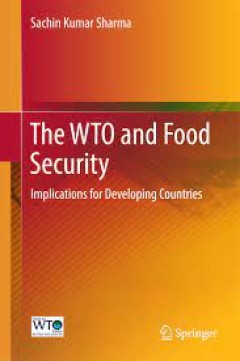
The WTO and Food Security Implications for Developing Countries
This book examines the public stockholding policies of selected developing countries from the perspective of WTO rules and assesses whether the provisions of the Agreement on Agriculture (AoA) could hamper these countries’ efforts to address the challenges of food security. Further, it highlights the need to amend the provisions of the AoA to make WTO rules just and fair for the millions of p…
- Edition
- -
- ISBN/ISSN
- 978-981-10-2179-4
- Collation
- -
- Series Title
- -
- Call Number
- -

Nonlinear Principal Component Analysis and Its Applications
This book expounds the principle and related applications of nonlinear principal component analysis (PCA), which is useful method to analyze mixed measurement levels data. In the part dealing with the principle, after a brief introduction of ordinary PCA, a PCA for categorical data (nominal and ordinal) is introduced as nonlinear PCA, in which an optimal scaling technique is used to quantify …
- Edition
- 1
- ISBN/ISSN
- 978-981-10-0157-4
- Collation
- X, 80
- Series Title
- SpringerBriefs in Statistics
- Call Number
- -
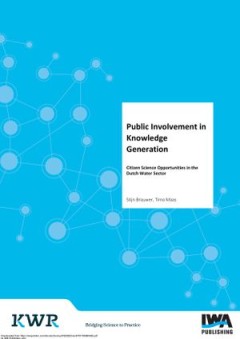
Public Involvement in Knowledge Generation : Citizen Science Opportunities in…
Public Involvement in Knowledge Generation is an Open Access co-publication with KWR.
- Edition
- -
- ISBN/ISSN
- 9781789060492
- Collation
- -
- Series Title
- -
- Call Number
- 320 BRO p

Integrating Immigrants in Europe Research-Policy Dialogues
This open access book explores how research and policymaking in the field of migrant integration have developed historically and how this interrelationship plays out in the strongly politicised climate of opinions on migration in Europe. It features interdisciplinary theoretical contributions as well as original empirical studies on research-policy dialogues at both the EU and country level. …
- Edition
- -
- ISBN/ISSN
- 978-3-319-16256-0
- Collation
- -
- Series Title
- -
- Call Number
- -
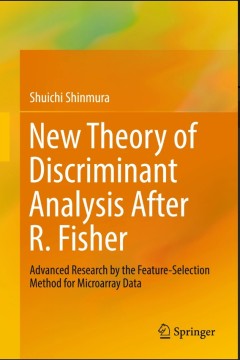
New Theory of Discriminant Analysis After R. Fisher
This is the first book to compare eight LDFs by different types of datasets, such as Fisher’s iris data, medical data with collinearities, Swiss banknote data that is a linearly separable data (LSD), student pass/fail determination using student attributes, 18 pass/fail determinations using exam scores, Japanese automobile data, and six microarray datasets (the datasets) that are LSD. We deve…
- Edition
- 1
- ISBN/ISSN
- 978-981-10-2164-0
- Collation
- XX, 208
- Series Title
- -
- Call Number
- -
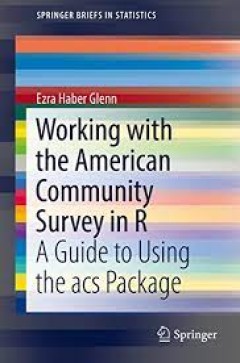
Working with the American Community Survey in R A Guide to Using the acs Pac…
This book serves as a hands-on guide to the "acs" R package for demographers, planners, and other researchers who work with American Community Survey (ACS) data. It gathers the most common problems associated with using ACS data and implements functions as a package in the R statistical programming language. The package defines a new "acs" class object (containing estimates, standard errors, a…
- Edition
- -
- ISBN/ISSN
- 978-3-319-45772-7
- Collation
- -
- Series Title
- -
- Call Number
- -
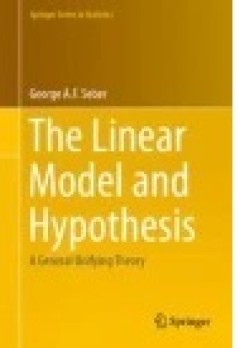
The Linear Model and Hypothesis
This book provides a concise and integrated overview of hypothesis testing in four important subject areas, namely linear and nonlinear models, multivariate analysis, and large sample theory. The approach used is a geometrical one based on the concept of projections and their associated idempotent matrices, thus largely avoiding the need to involvematrix ranks. It is shown that all the hypothes…
- Edition
- -
- ISBN/ISSN
- 978-3-319-21930-1
- Collation
- IX, 205
- Series Title
- Springer Series in Statistics
- Call Number
- -
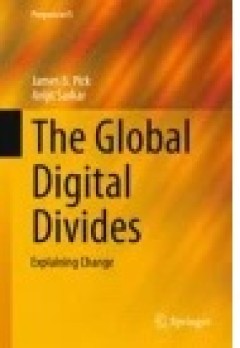
The Global Digital Divides
This book analyzes extensive data on the world’s rapidly changing and growing access to, use and geographies of information and communications technologies. It studies not only the spatial differences in technology usage worldwide, but also examines digital differences in the major world nations of China, India, the United States and Japan at the state and provincial levels. At the global lev…
- Edition
- -
- ISBN/ISSN
- 978-3-662-46602-5
- Collation
- XXIX, 386
- Series Title
- Progress in IS
- Call Number
- -
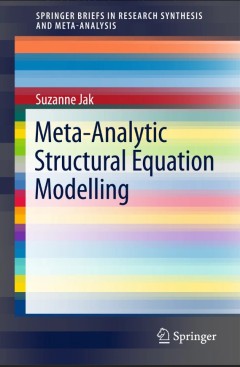
Meta-Analytic Structural Equation Modelling
This book explains how to employ MASEM, the combination of meta-analysis (MA) and structural equation modelling (SEM). It shows how by using MASEM, a single model can be tested to explain the relationships between a set of variables in several studies. This book gives an introduction to MASEM, with a focus on the state of the art approach: the two stage approach of Cheung and Cheung & Chan. B…
- Edition
- 1
- ISBN/ISSN
- 978-3-319-27172-9
- Collation
- VIII, 88
- Series Title
- SpringerBriefs in Research Synthesis and Meta-Analysis
- Call Number
- -
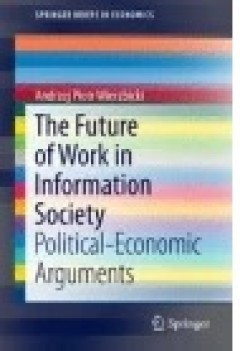
The Future of Work in Information Society
As such, the book proposes an evolutionary reform based on a seemingly minor but in fact essential correction of the corporate income tax, which he proposes should decrease in accordance with the percentage of the enterprise’s revenues expended to pay employee salaries. In this way, entrepreneurs will be motivated to implement new professions and occupations, as well as new workplaces. Only i…
- Edition
- -
- ISBN/ISSN
- 978-3-319-33909-2
- Collation
- X, 72
- Series Title
- SpringerBriefs in Economics
- Call Number
- -
 Computer Science, Information & General Works
Computer Science, Information & General Works  Philosophy & Psychology
Philosophy & Psychology  Religion
Religion  Social Sciences
Social Sciences  Language
Language  Pure Science
Pure Science  Applied Sciences
Applied Sciences  Art & Recreation
Art & Recreation  Literature
Literature  History & Geography
History & Geography